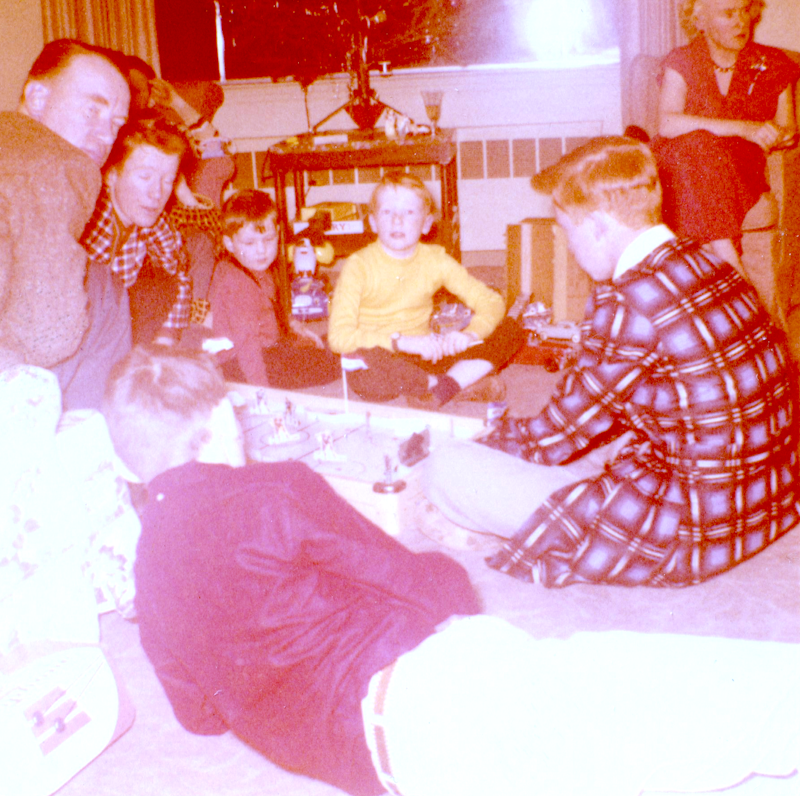It’s not even two months since I praised a story by David Samuels, editor of non-digital County Highway—the stylish magazine-disguised-as-19th-century-newspaper that just began its second year of publication—but I have no qualms about doing so again. (Samuels is among the few journalists worth reading today: his Tablet story this week about the 2024 presidential election was remarkable, at a time when his contemporaries are publishing nothing at all remarkable.) I wasn’t particularly taken by Samuels’ subject, 77-year-old songwriter Jimmy Webb, but it’s the mark of a smart writer who can hook in a reader—for example, the best restaurant reviewers engage people who’ll never eat at the establishment under scrutiny—with phrase-turning, crazy paragraphs that are pleasingly incomprehensible and maybe scattered snatches of pop culture gossip.
Samuels and co-founder Walter Kirn have glorified (“fetishized” is too strong) Webb’s song “Wichita Lineman,” a big hit for Glen Campbell in 1968 (Samuels tells Webb in their lunch on Long Island that the newspaper’s “County” is an homage to the song) that didn’t mean much to me as a 13-year-old. A pleasant song that I wouldn’t turn off when it played on WMCA—this was 1968, and a song by Campbell was way down the list compared to singles from the Stones, Doors, Aretha, the Byrds, Beatles, the Motown and Stax factories and on and on—but after a Twitter back-and-forth with Kirn about the song last year I took the point, somewhat skeptically, that it meant a lot to people who didn’t live on the East or West Coast. Enthusiasts of “The Wichita Lineman,” and lately there are millions, says it’s a wrenching description of a hard-working man, a patriot, untouched by the 1960s counterculture. At least it was better than two other Webb smash hits, “MacArthur Park” (performed by Richard Harris) and the schmaltzy “By the Time I Get to Phoenix” (Campbell). Squaresville, man, like wearing penny loafers or white socks.
Samuels says that “Wichita Lineman” is in his Top 5 of all-time songs, along with Brian Wilson’s “God Only Knows,” and judging by his near hero-worship (but not grating!) profile of Webb, I believe that’s true. It’s a little weird since Samuels was born the year before the song was a hit, and unlike Kirn, he’s from Brooklyn, but as one my Top 5, the Gene Pitney-penned, Phil Spector-produced “He’s a Rebel” came out when I was just seven, slack is extended.
And really, how can you not be drawn in by a story that begins with this off-the-wall paragraph: “Great artists talk directly to God. Sometimes, more often than not, they do it only once. Maybe a handful of times, at best. Why God chooses some people to talk to and not others is a mystery that other artists love to savor and ponder and get jealous about, which is a solid reason to prefer the company of normal people instead.”
That’s pretty boss gibberish to start off a profile of Jimmy Webb—who shared cocaine with John Lennon and Paul McCartney, even though the latter, in very Paul fashion, later implied in a “major publication” that Webb wasn’t at all cool—and I read every word even though I don’t give a shit about the subject.
Anyway, I was reminded that one of the few remaining mysteries of Bob Dylan’s career is why he never recorded “Love Is Just a Four-Letter Word,” which reads like it was written around Another Side, and is only known because Joan Baez—after their bitter falling out—covered the song in 1968. A sample lyric: “I said goodbye unnoticed/Pushed forth into my own games/Drifting in and out of lifetimes/Unmentionable by name/Searching for my double, looking for/Complete evaporation to the core/Though I tried and failed at finding any door/I must have thought that there was nothing more absurd/Than that love is just a four-letter word.” I’m not a Baez fan, but I liked her cover, even if her pronunciation of “absurd” as “ab-zurd” bugged me.
The picture above of my family—not very flattering, save my turtleneck-clad brother Gary in the center (wearing a watch at eight!) and my dressed-up mom at the top right—one Christmas Day is an example of common middle-class suburbia at a time when none of us had yet heard of Jimmy Webb or Bob Dylan.
Look at the clues to figure out the year: Sam Rayburn was Speaker of the House; 14-year-old Bobby Fischer wins the United States Chess Championship; Hearst Castle in Sam Simeon, CA opens for tourists; Doris Day stars in Teacher's Pet; Muppets, Inc. is founded; Sharon Stone is born and Tyrone Power dies; Roger Corman’s I, Mobster is released; John Kenneth Galbraith’s The Affluent Society is published; Ricky Nelson’s “Poor Little Fool” is a big hit; Claude Chabrol inaugurates the French New Wave with his film Le Beau Serge; Tim Tam wins the Kentucky Derby; and the Church of England gives its “moral backing” to family planning.
—Follow Russ Smith on Twitter: @MUGGER2023

